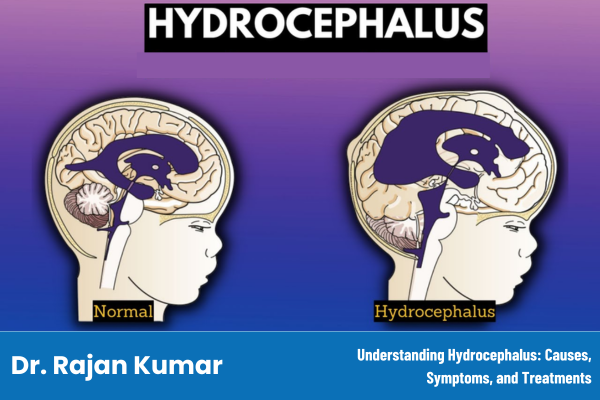Hydrocephalus is a serious neurological condition characterized by an accumulation of cerebrospinal fluid (CSF) in the brain’s ventricles, leading to increased intracranial pressure. Dr. Rajan Kumar, one of the best neurosurgeons in Kolkata, provides essential information on hydrocephalus, including its causes, symptoms, and treatment options.
Causes of Hydrocephalus: Hydrocephalus can result from various factors:
- Obstructive Hydrocephalus: Blockages in the CSF pathways, often due to tumors, congenital anomalies, or brain injury.
- Communicating Hydrocephalus: Occurs when the CSF is not absorbed properly, despite open pathways between ventricles.
- Normal Pressure Hydrocephalus: Characterized by a gradual increase in CSF pressure with normal readings on standard tests, often seen in older adults.
Symptoms to Watch For:
- In Infants: Rapid head enlargement, irritability, and vomiting.
- In Adults and Older Children: Persistent headache, visual disturbances, balance problems, and cognitive impairments.
Treatment Options:
- Shunt Placement: The most common treatment, involving the insertion of a ventricular-peritoneal (VP) shunt to drain excess CSF and relieve pressure.
- Endoscopic Third Ventriculostomy (ETV): A surgical procedure to create an alternate pathway for CSF flow, used in certain cases of obstructive hydrocephalus.
Dr. Rajan Kumar emphasizes the importance of early diagnosis and timely intervention for effective management of hydrocephalus. For expert care and personalized treatment plans, consult Dr. Kumar, a leading neurosurgeon in Kolkata, to ensure optimal outcomes and improved quality of life.

